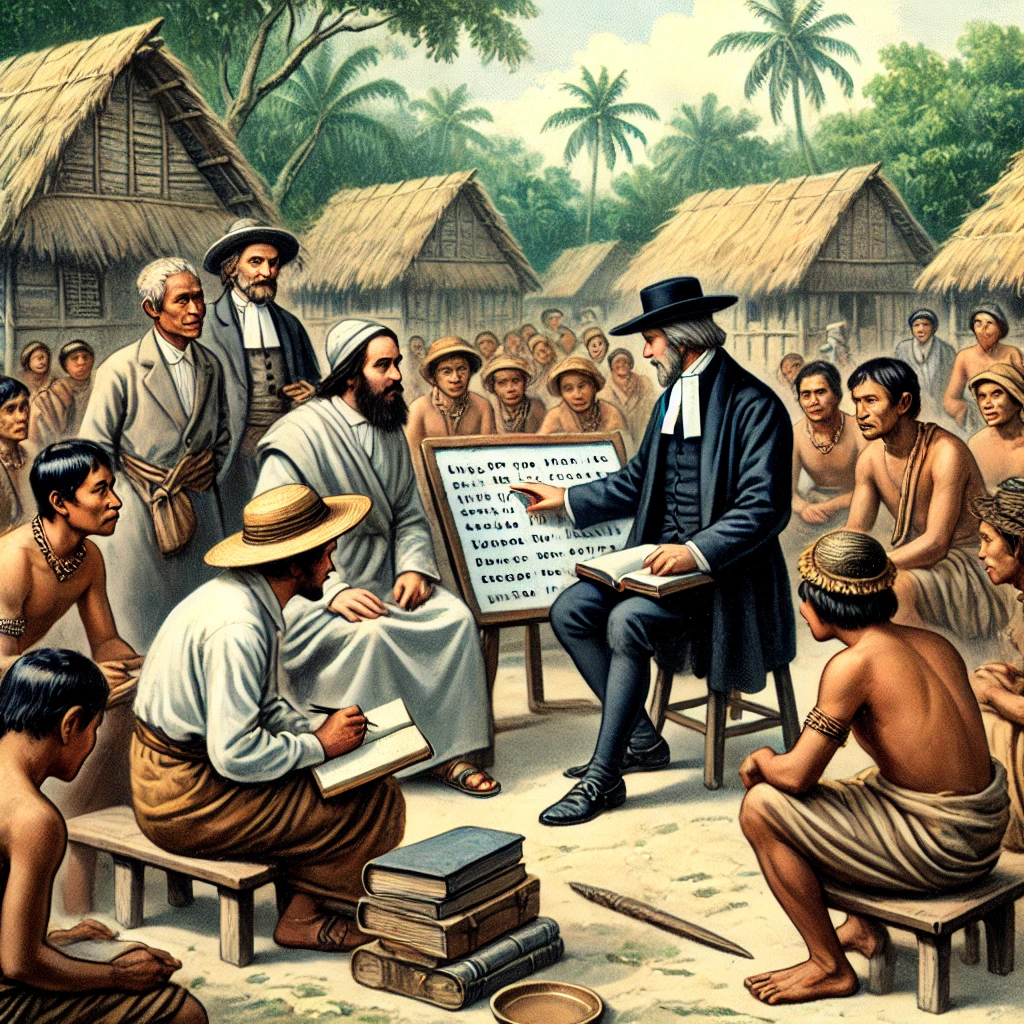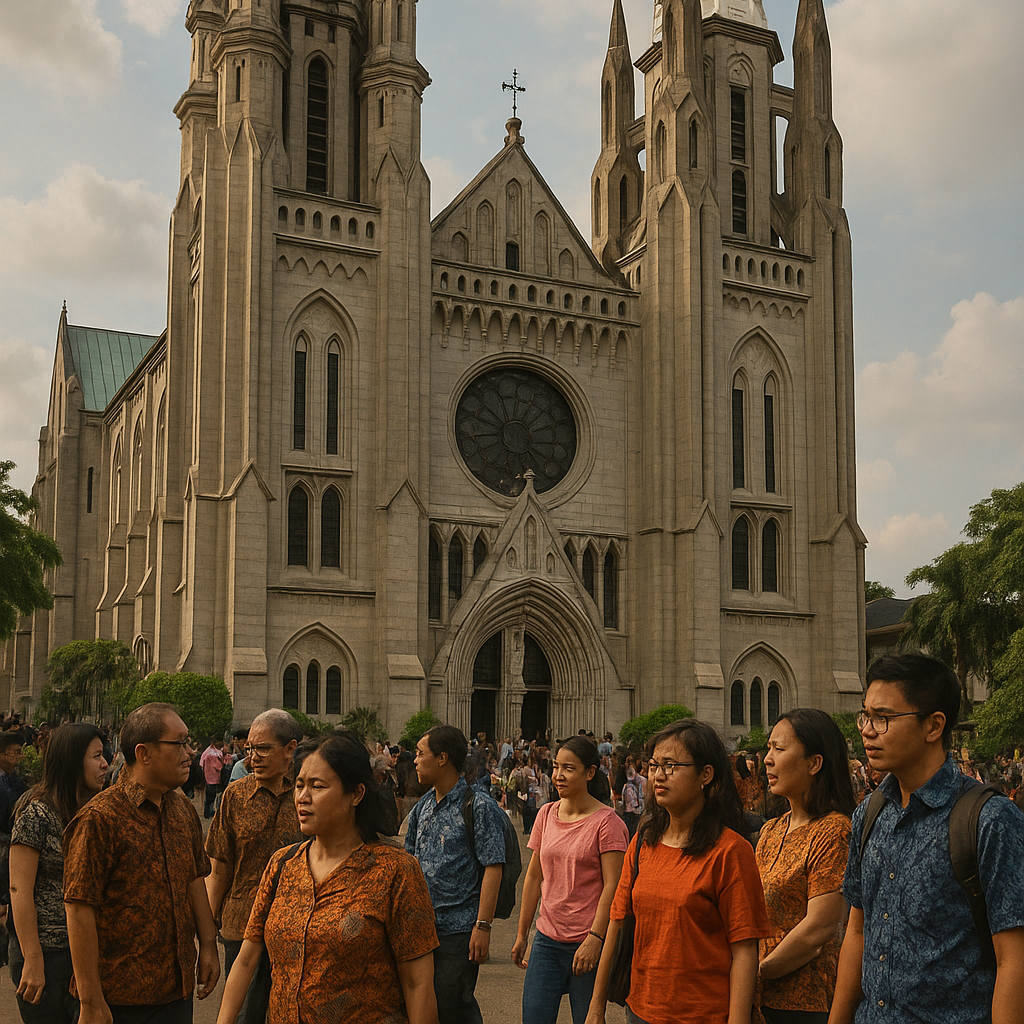How Missionaries from Europe Learned Local Languages to Teach the Gospel
theolingua.id – Since ancient times, missionaries from Europe have travelled to various parts of the world to spread the teachings of the Gospel. One of the biggest challenges they face is the language barrier, which often prevents them from communicating with the local community. Without a good understanding of the local language, they can have difficulty conveying their religious message and may even be misunderstood by the local population.
To overcome this challenge, missionaries developed a variety of unique and persevering language learning methods. They not only tried to master vocabulary and grammar, but also to understand the cultural nuances contained in the language. In this way, they could convey the teachings of the Gospel more effectively, build closer relationships with local communities, and increase the chances of success in their mission.
Missionaries’ Approach to Language Learning
Missionaries from Europe who came to various parts of the world, including Asia, Africa, and the Americas, realised that mastering the local language was the key to the success of their mission. Therefore, they used several methods to learn the local language:
- Learning Directly from Local People Missionaries often interacted directly with local people to absorb their vocabulary and grammar. They lived with local communities, observed everyday conversations, and recorded every word and phrase they heard.
- Using an Immersive Approach Missionaries placed themselves in environments where only local languages were spoken. This helped them learn faster because they were forced to understand and speak the local language to meet their daily needs.
- Compiling Dictionaries and GrammarsMany European missionaries not only studied local languages but also compiled dictionaries and grammar books as guides for other missionaries. This became an important legacy in linguistic studies and helped the next generation of missionaries understand local languages.
- Teaching and Translating the Gospel As part of the language learning process, missionaries often translate scriptures and teaching materials into local languages. This not only helps them understand the structure of the language, but also makes the Gospel more accessible to the local population.
Training at Missionary Centres
For modern missionaries, before they are sent to their areas of assignment, they usually receive language training at missionary training centres. In a few months, they learn the basics of the local language, from pronunciation, grammar, to vocabulary related to the teachings of the Gospel. They are also taught communication strategies that are in accordance with the local culture so that the message conveyed can be better received.
In addition to formal language learning, missionaries also receive practical training through simulated interactions with native speakers or peers in training programmes. With this approach, they not only understand the linguistic aspects, but also the social skills needed to build relationships with the local community. The aim of the training is to enable them to teach the gospel more fluently and effectively when they arrive at their place of ministry.
Challenges in Language Learning
Although many missionaries have succeeded in mastering the local language, they face various challenges in the learning process, including:
- Differences in Language StructureSome local languages have a very different grammar from the missionaries’ native language, so it takes longer to understand and master them.
- Diverse DialectsIn many areas, local languages have many different dialects, so missionaries must adapt to local variations.
- Limited Learning Resources In the past, many local languages did not have a standard writing system, so missionaries had to rely on hearing and manual recording to learn the language.
Impact of Language Learning by Missionaries
The missionary efforts in learning local languages not only helped them in spreading the Gospel, but also contributed to the preservation and documentation of local languages. The dictionaries and grammar books they compiled became valuable references in the fields of linguistics and cultural history.
In addition, the approach they used in language learning has inspired foreign language teaching methods today, especially in immersive and direct interaction-based approaches.
Conclusion
Missionaries from Europe played an important role in the learning and spread of local languages in order to spread the teachings of the Gospel. They not only passively learned the language, but also actively developed effective learning methods, such as direct interaction with the local community and a cultural immersion approach. By living with the local community, they were able to understand the language in a broader social and cultural context, making the teachings of the Gospel more relevant and acceptable to the community.
In addition, missionaries also played a major role in the documentation of local languages through the compilation of dictionaries, grammar books, and translations of the scriptures. This effort not only helped the next generation of missionaries understand the local language, but also made an important contribution to linguistic studies. Despite facing various challenges, such as differences in language structure and dialect diversity, the linguistic legacy they left behind continues to have an impact today in both the religious and academic fields.





